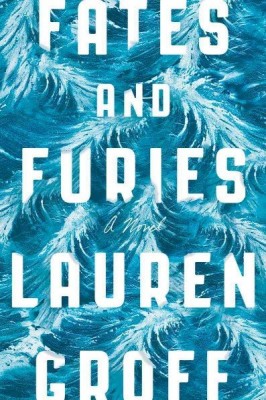
Married impulsively after a two-week relationship, Lotto and Mathilde are young, beautiful, and free. Lotto is gregarious and rich, Mathilde is quiet and has a mysterious past. Their friends predict it will be over in a year.
This is the second book in a row that I’ve read in which a marriage is narrated from the perspective of each of its members. In contrast to The New World, the first half of this one, titled “Fates”, belongs to Lotto, and Mathilde’s narrative, “Furies”, takes over halfway through. Lotto’s life seems to be charmed; even after his mother disinherits him because of his marriage, their poverty is short-lived, and Lotto’s career as a playwright soon adopts an unstoppable upward trajectory.
Mathilde is the real dark horse of the novel. We sense this throughout Lotto’s half of the book, through her sometimes-unpredictable reactions and brooding silences, but not until the narrative switches to her perspective do we learn how little Lotto actually knows about his wife throughout their twenty-something-year marriage. I don’t want to say too much about it because finding out is part of the fun of this somewhat marvellous novel. But I will say that many key events of Lotto’s life take on an entirely new significance after the fact.
I can’t really think of anything I didn’t like about this book. It’s well-written, well-structured, has intriguing and memorable characters. The basic subject-matter, on its face, is well-trodden (it was the second book in a row for me essentially about the same thing), but Groff manages to bring a freshness and interest to it that is a decent feat in the circumstances. The only thing I can think of is that it twice used an obscure word (“hallux”, which I had to look up – in context it meant “big toe”) in a way that distracted me into thinking about the writer and tapped a chisel into the fourth wall. Still, it’s a fairly minor complaint.
One observation: I read this in two or three gulps over the course of, at a guess, around 36 hours, and I think that’s the way to do it. In a novel that goes back over the same events twice from different perspectives, you want to have retained a reasonably accurate memory of what happened the first time through or you’ll lose a lot of the meaning. For that reason, I don’t think this is a novel that lends itself well to a reading that takes more than a week.